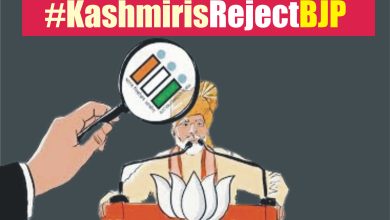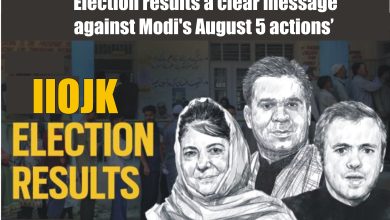IIOJK assembly elections–BJP facing mounting dissatisfaction both in Jammu, Valley: BBC report
 Srinagar: Indian illegally occupied Jammu and Kashmir is gearing up for another sham elections for the assembly, the first since the revocation of the territory’s special status in 2019.
Srinagar: Indian illegally occupied Jammu and Kashmir is gearing up for another sham elections for the assembly, the first since the revocation of the territory’s special status in 2019.
According to Kashmir Media Service, so-called election will be held on 90 seats; 47 in Kashmir and 43 in Jammu in three-phase.
BBC’s Auqib Javeed and Zoya Mateen in their report on these elections mentioned that the Bharatiya Janata Party (BJP) is facing mounting dissatisfaction in both Jammu and Kashmir valley due to its policies. In a notable shift, as per the report, elections that were historically marked by boycotts are now witnessing participation as a means to challenge the BJP policies and reclaim local control over political affairs of the territory.
The major players are the two main regional parties – the PDP led by Mehbooba Mufti and the National Conference (NC) which is headed by Omar Abdullah.
Modi’s Bharatiya Janata Party (BJP) is also contesting but not many are betting on the party, which had a stronghold in Jammu in the past but a weak political base in the valley.
“There is an absence of democracy and freedoms in Kashmir and many political activists remain in jail,” said political scientist Noor Ahmad Baba. “The election allows people to give their verdict for or against these changes.”
“It [election] has nothing to do with the Kashmir dispute,” the BBC quoted a man who did not wish to be named.
Almost all opposition parties have pledged to restore statehood and the territory’s special status except for the BJP that has ruled out restoring the political status.
In the last elections in 2014, the BJP had formed a government in alliance with PDP after sweeping Jammu. The alliance fell apart in 2018 after years of disagreements.
As per the report, people in occupied Jammu and Kashmir feel neglected, citing rising unemployment and inadequate infrastructure progress despite tall claims by the BJP. Military presence continues to mark the so-called electoral process.







